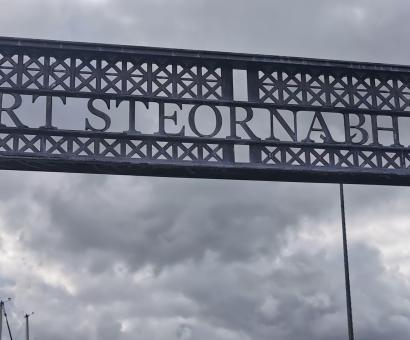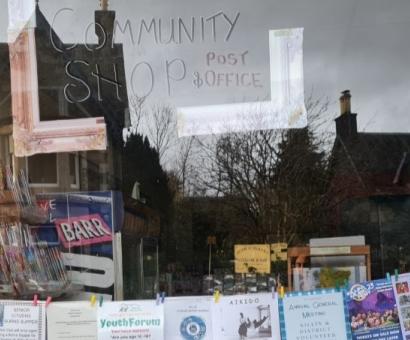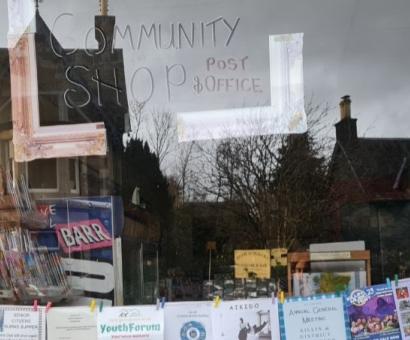CWB UK Case Studies
These examples showcase diverse approaches to fostering community wealth, economic resilience, and local empowerment. They emphasise the importance of inclusive economic practices that benefit the community as a whole.
Preston
The most prominent example of the Community Wealth Building model in the UK is the Preston model. This has seen significant changes in Preston City Council's expenditure patterns. In 2012-13, six key local organisations spent £750 million with only 5% spent in the local council area, resulting in a £450 million leakage from the Lancashire economy. By 2016-17, despite a decrease in overall expenditure to £620 million there was an increase in local spending.
Several factors contributed to this change. In 2012, Preston City Council became a Living Wage Employer, ensuring fair wages for its employees. In 2013, an analysis of expenditure highlighted the need for more localized spending. The understanding of the local impacts of collective expenditure was enhanced through collaborative efforts and the development of a 'statement of intent' which promoted best practices. By 2016-17 the success of these initiatives was demonstrated by a significant shift towards increased local spending.
In 2017, Preston City Council expanded its commitment to the broader Community Wealth Building programme, introducing initiatives such as a community bank, the development of the co-operative sector, and pension investments in locally developed student housing. The "Preston Model" gained recognition in 2019 for its transformative approach, inspiring other local authorities across the UK to follow suit in taking back control and implementing similar initiatives.
Manchester
Manchester City Council is another example which has demonstrated a commitment to sustainable procurement recognising the impact of its expenditure on the local business community.
In 2019-20, £511 million was spent with the top 300 suppliers, with £353 million (69.2%) going to Manchester-based organisations, a significant increase from 51.5% in 2008-09. The proportion of procurement spent with small and medium-d enterprises (SMEs) rose from 46.6% in 2014-15 to 62.9% in 2019-20.
This local spending created an estimated 2,251 jobs and £143 million re-spent in the Manchester economy by the top 300 suppliers. Social and environmental benefits included 6,189 employment opportunities for 'hard to reach' individuals, 576 apprenticeships, and 55,385 hours of support to the voluntary and community sector.
The shift towards progressive procurement began in 2007 with the establishment of a corporate procurement team and the creation of a Sustainable Procurement Policy and Statement of Intent in 2008. In 2010, 'The Power of Procurement' was launched.
Manchester City Council is now recognised for its leadership in progressive procurement, with the social value of projects taken into account alongside cost and quality. (Social value moves beyond a solely monetary focus to understand what matters to people, and how a project might bring benefits or undesirable outcomes.)
The Greater Manchester Combined Authority and the Association of Greater Manchester Authorities have also embraced change, implementing a social value policy and dedicated procurement hub. During the Covid-19 pandemic, Manchester and Liverpool City Councils negotiated agreements with local hotels to accommodate rough sleepers, potentially leading to transformative outcomes.
Wigan
Challenges such as concentrated land ownership, property speculation, and absentee landlords have exacerbated rising inequality and housing affordability across the UK. Austerity measures have further strained local authorities, leading to prioritisation of land and property sales over community needs.
To address these issues, Wigan Council has implemented community asset transfers, empowering local organisations to own and manage facilities like sports venues and libraries. This model enables communities to provide essential services using these assets.
Other initiatives include the University Hospitals Birmingham NHS Foundation Trust allowing community groups to use their facilities for events, and the East Lancashire Hospitals NHS Trust collaborating of affordable housing projects.
The Community Savings Bank Association
The Community Savings Bank Association is working alongside a range of organisations, such as community development corporations, financial institutions, and social investment funds, with the aim of creating a network comprising 19 regionally oriented, customer-owned, and mission-oriented banks.
One of these banks, Banc Cambria, functions as a cooperative and has received financial backing from the Welsh Government. Its goal is to secure a complete banking license by 2021. Banc Cambria places a strong emphasis on local ownership and governance, seeking to tackle the absence of robust financial infrastructure in Wales and promote a thriving Welsh economy.
North West Mutual
North West Mutual is a community bank initiated by Wirral, Preston, and Liverpool councils to support local businesses and combat inequality. This bank plans to establish multiple branches across the region, countering the closure of many high street bank branches and increasing lending to small to medium enterprises.
Lancashire Pension Fund
Local authority pension funds in Lancashire have been invested in housing, creating positive social and environmental outcomes alongside financial returns.
Local Pension Partnerships
In London, organisations collaborate to form a fund investing in assets like affordable housing, community regeneration projects, digital infrastructure, and clean energy.
These case studies highlight the positive impacts from applying the Community Wealth Building pillars (progressive procurement, fair employment and just labour markets, shared ownership of the local economy, socially just use of land and property, and making financial power work for local places) in the UK context.
We will be investigating international examples of CWB to further explore opportunities and challenges of this potentially transformative approach to organising local economies, seeking to apply lessons learnt to the rural and islands context.









